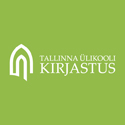Rahvusvahelisuse ja interdistsiplinaarsuse mõju teaduskeelele argikultuuri uurimise näitel [Impact of internationality and interdisciplinarity on research terminology. Example of everyday culture research]
Abstract
This article introduces the "e-Glossary of Everyday Culture Research Terminology" (http://argikultuur.e-uni.ee, started in 2004), created cooperatively by the Department of Estonian and Comparative Folklore and the Department of Ethnology of the University of Tartu. The aim of compiling the glossary was to explain how the update of terminology is reflected in researchers' practical work in the 1990s, i.e. in the era of interdisciplinarity and internationality. Generally, the changes that occurred in science in the 1990s were set in the context of the paradigm shift that took place about twenty-thirty years earlier: both in folkloristics and ethnology there was a shift from object-centred approach to the application of more 90 interpretive methods, in which instead of the objects, the researcher focused on the problem of the mutual relations of the object and the social group. Drawing on the example of the e-Glossary of Everyday Culture Research, the author observes the problems that arose in the period of terminology renewal: what position to take with regard to the existing terms if their definition no longer matches the current situation in research; how to translate the terms; how to show the connection between terms and specific research trends. Different preferences can be detected in the creation of terminology that was formed in the course of scientific discussions. In folkloristics the existing terms were preferably redefined or updated to match the innovations. This enabled to show the continuity of research. In ethnology the tendency was to emphasise new approaches by taking new terms into use. In the translation of terms it appeared purposeful to take the regional aspects of research tradition into consideration and proceed from the semantic background of the concept rather than use the direct translation of the term.
Keywords
ethnology, everyday culture research, folklore research, history of folklore discipline
Full Text:
PDFRefbacks
- There are currently no refbacks.
Published by / Kirjastaja:

ISSN 2504-6616 (print/trükis)
ISSN 2504-6624 (online/võrguväljaanne)
